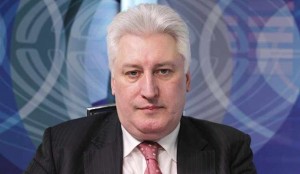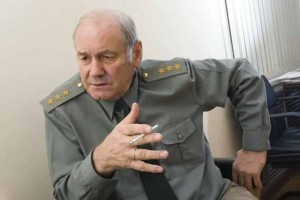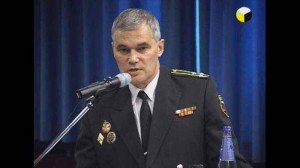
Reopening of Lourdes is ‘a boon to Russia,’ experts say
The reopening of the Russian listening post at Lourdes is the correct and important step “to curb the appetites of the United States,” and Russia should sign a 99-year irrevocable lease for it, military experts interviewed by the news agency RIA-Novosti on Wednesday (July 16) agreed.
But Cuba should be prepared for retaliatory pressures from Washington, cautioned one.
(For background on this news in Progreso Weekly, click here.)

Retired Army Col. Igor Korotchenko, chief editor of the publication “National Defense” and a member of the Defense Ministry’s Public Council, believes that the Lourdes base is an important element of national security for Russia in the current geopolitical environment, since the range of possible threats to Russia is growing and the main challenges emerge from the United States.
“The agreement [with Cuba] allows Russia to substantially increase the volume of information produced by the U.S., which will provide some very significant advantages in the analysis and forecasting of the currently military and political situation in the world,” Korotchenko told RIA-Novosti, recalling that in the past Lourdes was operated by two Russian intelligence services, the GRU (Main Intelligence Administration) and the SVR (Foreign Intelligence Service).
Korotchenko believes that, in terms of Russian interests, the Lourdes post should not be subjected to a simple intergovernmental agreement but bound by a 99-year irrevocable lease that would not allow Cuba to terminate it prematurely.
“Thus, the Russian Federation will be insured against a possible political ‘force majeure,’ including the coming to power of a new generation of Cuban leaders,” he told the news service.

In addition, Korotchenko said, Cuba should grant the Russian personnel the right of extraterritoriality, he said, and allow the Russians to upgrade their intelligence-gathering systems as they see fit.
Gen. Leonid Ivashov, president of the International Center for Geopolitical Analysis, believes that “we need to keep a group there to curb the appetites of the United States.” He pointed to the fact that Cuba allows Russian ships to dock “in a very cozy bay” and that Venezuela and other Latin American countries also welcome Russian vessels.
He said that “for me and for our armed forces and veterans, the [reopening] is, of course, a happy event.” The post is “a deterrent” to U.S. ambitions, he added. “The situation today confirms the conclusions of those who said that the Americans always see Russia as a geopolitical rival.”
“Today, we return there. Certainly, we lost something [since it closed in 2001], including the equipment. But today it is necessary to modernize this center and not just it,” Ivashov told RIA-Novosti.
“The missile defense program will be implemented and so will the program of military presence” in the region, the expert said.

Konstantin Sivkov, president of the National Geopolitical Academy and a Ph.D. in Military Sciences, said that the reopening of Lourdes will have both positive and negative consequences.
“As I recall, the center had a very large coverage area and allowed intelligence gathering not only of the U.S. but also of the entire region,” Sivkov is quoted as saying. “Therefore, the creation of such a center is certainly a boon to the Russian Federation.”
Washington’s reaction will be pressure against Russia and Cuba and further cooling of U.S.-Russia relations, he predicted.
“I have no doubt that Cuba will undergo additional pressure from the U.S. because, with Cuba’s help, Russia encroached into the [American] Holy of Holies,” Sivkov said.

